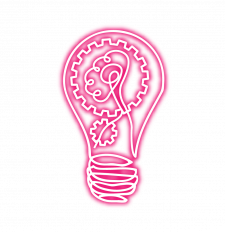You want your child to have a passion for reading and writing and yet you watch them struggling to learn.
This is distressing for a parent to witness.
A parent’s heartbreak can quickly turn to pain when they don’t know what’s preventing their child from learning.
“I am worried about my child’s performance at school?” “I don’t know how to get her help, where do I begin?”. “I am so overwhelmed with trying to hire some help but there is confusion.”
Many parents struggle to find the perfect person to help my child. Choosing the type of professional to hire is difficult to discern.
Here is a description of the roles and additional information you will want to guide you on this journey.
Educational therapy and tutoring are professional services and are incorrectly often considered the same. Yes, both tutors and educational therapists assist children to succeed in school.
Although, despite their similarities, educational therapy and tutoring have fundamental differences. Your child’s needs will be better met if you understand the distinctions.
Tutoring
A tutor is a person who helps their child enhance academics. The main goals of tutoring are assessment and clarification of curriculum topics.
Tutors concentrate on the specific subject matter and assist students in improving their understanding of the subject, their grades, and their performance.
They typically re-teach skills that have already been taught in class.
Tutors take academic goals into account while creating a customized educational plan.
Some students may have difficulty in a particular course and may require extra support outside of the classroom to fulfill their learning objectives, thus needing help from outside tutors.
Students’ work is reviewed by tutors to see which abilities or concepts they are struggling with, and which strategy should be developed to assist them to improve their skills and understanding of the topic.
Students’ different learning styles aren’t generally considered in tutoring. Students who struggle with learning strategies may not be the greatest candidates for tutoring since the majority of tutors are not trained to adapt their teaching style to meet each student’s needs.
A student’s comprehension challenges may go unnoticed by tutors, who are not necessarily trained to seek subtle clues that indicate where a student is struggling.
This concept is applied to other areas of weaknesses as well.
Educational therapy
An Educational Therapist is a person who helps students with the underlying skills needed to learn…Many concepts are combined in Educational Therapy to establish a holistic therapeutic strategy.
Specially trained educational therapists who are certified by a recognized organization work with individuals who have specific and usually identified learning difficulties.
Educational therapists use tactics building on the student’s strengths while addressing their weaknesses.
They communicate and collaborate with all relevant individuals (parents, teachers, therapists, etc) to help the client, and understand the connection between the social/emotional and academic pieces.
Tutoring vs Educational Therapy
The main difference between the two is that tutoring focuses on what to learn, whereas educational therapy concentrates on how to learn.
Difference in services:
A tutor often helps students with their schoolwork and teaches them specialized subject information.
So, a student who is having difficulty in math class can ask their tutor to educate him or her on the math principles that were not taught in class.
Tutors do not have specialized training in learning difficulties, nor do they have the training to interpret or understand psychoeducational assessments.
There will normally be no other help from a tutor other than the subject area they are expected to reteach.
Educational therapy involves the use of alternative teaching methodologies and extensive, personalized intervention because they employ a variety of different tactics and treatments.
In large part, this relies on the child’s particular situation. Educational therapists focus on teaching underlying skills such as focus, attention, memory, and work habits through teaching methods.
They also educate the child about time management, solving problems, exam taking, and organization skills in addition to remediating learning disabilities
Differences in Training:
A tutor’s background does not generally include extensive training in specific learning disabilities or relevant interventions.
A should have extensive knowledge in a specific academic area.
Learning disparities are addressed by an educational therapist who has considerable training and experience in employing intervention tactics.
Difference in Goals and Strategies:
A tutor’s primary purpose is to help students gain a better understanding of a specific subject and help, and improve their grades.
A tutor often employs traditional teaching methods to do this whereas an educational therapist collaborates with students to create goals and develop an action plan which tackles, not just academic issues, but also the psycho-educational and social-emotional elements of self-improvement.
Difference in Growth Measurement:
Achievement of psychoeducational goals is used to measure growth in educational therapy.
For instance, Rosa is a student who suffers from math. “Rosa will benefit from songs, skip counting, and long-term rehearsal,” would be a goal for this kid.
The moment Riya can skip count numbers and recall math knowledge on-demand, we know she has achieved her goal. Getting good marks is only one part of the equation.
About a student’s growth in an area where they’ve struggled before. (learn smarter, 2018)
Tutoring is primarily measured by grades and in some cases, academic testing, and the need for Educational Therapy is often measured by a neuropsychological assessment.
Difference in Cost:
Some schools provide tutoring services for free or at a minimal cost.
Online tutors and tutors at learning centers may be less expensive than private tutoring sessions.
An educational therapy costs more than tutoring because the training is not comparable.
Educational Therapy is founded on a greater understanding of learning and thinking differences that’s why the tactics are more intense and complicated.
Often students in Educational Therapy may need a tutor to help with specific subject information an Educational Therapist is unable to provide.
Difference in Social-emotional Advantages:
Tutoring enables a child to improve his or her grades and as students improve their grades, their self-esteem increases, and it boosts up their confidence.
School-related emotional and behavioral problems are addressed in educational therapy sessions.
Therapists are trained to comprehend the students’ unique learning difficulties and the patterns and behaviors that have evolved to compensate or disguise his or her limitations.
Difference in Focus:
Tutors are experts in a certain subject area, and they prefer to focus on what a student needs to understand for a particular class.
For example, they may assign students a letter grade to help them achieve a specific goal. The employment of a tutor is a perfect alternative for students who are suffering from particular subjects.
Consider employing an educational therapist, however, if a student is suffering in numerous areas and can’t manage to juggle all the abilities necessary in the learning process.
Students and educational therapists work as a team to come up with the best possible approaches tailored to the students’ needs. Each student’s approach will look different than the next.
Academic, cognitive, and emotional strengths and challenges are considered by educational therapists while working with learners. They help learners become effective students, rather than just concentrating on the subject.
Difference in Issues:
Undiagnosed reading, writing, and math challenges are some of the areas addressed in educational therapy.
The scope of work includes everything from auditory processing, dyslexia, comprehension deficits, ADHD and the struggles that come with that, and everything in between.
Students benefit from tutoring when they are having difficulty with a subject and are unable to retain all the information in a class period.
Tutoring creates a greater understanding of the subject matter, leading to an increase in self-esteem, which leads to better grades…
Differences in Advantages:
Having a tutor allows students to ask questions until they fully understand the concept.
Teachers are unable to take the time to focus on one student’s questions while in a classroom full of other kids.
Tutors tend to help increase the child’s intrinsic drive to study when the tutor customizes the educational environment to match the needs of the student and finds ways of making the source material interesting and practical.
When students digest and integrate material at their own pace and are led by intrinsic motivation, they are much more inclined to do well in school.
An increase in self-confidence and self-esteem can reduce the likelihood that they would doubt their expertise and be hesitant to make mistakes. (Jon, 2020).
An educational therapy plan is designed for each student to guarantee benefits from individualized sessions.
Moreover, educational therapists propose suggestions for narrowing the achievement gap.
Some students require putting forth a great amount of effort.
Therapists are aware of their clients’ academic strengths and weaknesses.
This allows the therapist to create an appropriate action plan using research-based techniques to help the students’ needs.
They work as a team setting realistic goals by becoming active participants in their clients’ achievements.
Stay empowerED,
Nicole
Sources
(n.d.). Retrieved from https://study.com/articles/difference_between_teacher_tutor.html
(n.d.). Retrieved from https://www.aetonline.org/images/PDFs/AET-Tutor-vs-ET-FINAL-10-2013.pdf
(n.d.). Retrieved from https://smarts-ef.org/blog/educational-therapy-tutor-or-special-education-teacher/
( 2017 , Jul 19,). Retrieved from THE BENEFITS OF TUTORING: HOW TUTORING HELPS: https://gradepowerlearning.com/benefits-of-tutoring/
ASCA National Model. (2005). Retrieved from https://www.bcbe.org/Page/14433
Clark, A. (n.d.). Retrieved from https://www.understood.org/articles/en/the-difference-between-tutors-and-educational-therapists
Clark, A. (n.d.). The Difference Between Tutors and Educational Therapists. Retrieved from https://www.understood.org/articles/en/the-difference-between-tutors-and-educational-therapists
Education Therapy. (2020, 09 17). How is Educational Therapy Different from Tuition? Retrieved from https://mindchamps-alliedcare.com/blog/how-is-educational-therapy-different-from-tuition/
Educational Therapy 101. (2020, september 11). Retrieved from https://community.teamspecialx.com/news/16066
FUNDAMENTALS OF MIND, EDUCATIONAL CONSULTING. (n.d.). Retrieved from http://www.fundamentalsofmind.com/educational-therapy-vs.-tutoring.html
Jaleel, A. (2014, 08 29). Educational Therapy vs. Tutoring: What Parents Should Know. Retrieved from https://www.lexercise.com/blog/educational-therapy-v-tutoring
Jon. (2020). Retrieved from https://www.superprof.co.uk/blog/private-tutoring-the-pros-and-cons-of-getting-some-extra-help/
Lambert, K. &. (n.d.).
learnsmarter. (2018, Jun 19). Educational Therapy vs. Tutoring. Retrieved from Educational Therapy Series: https://learnsmarterpodcast.com/ep-07-educational-therapy-series-educational-therapy-vs-tutoring/
Patino. (2014). What You Need to Know About Educational Therapy. In Learning & Attention. Retrieved from https://www.understood.org/en/learningattention-issues/treatments-approaches/therapies/what-you-need-to-know-about-educationaltherapy






